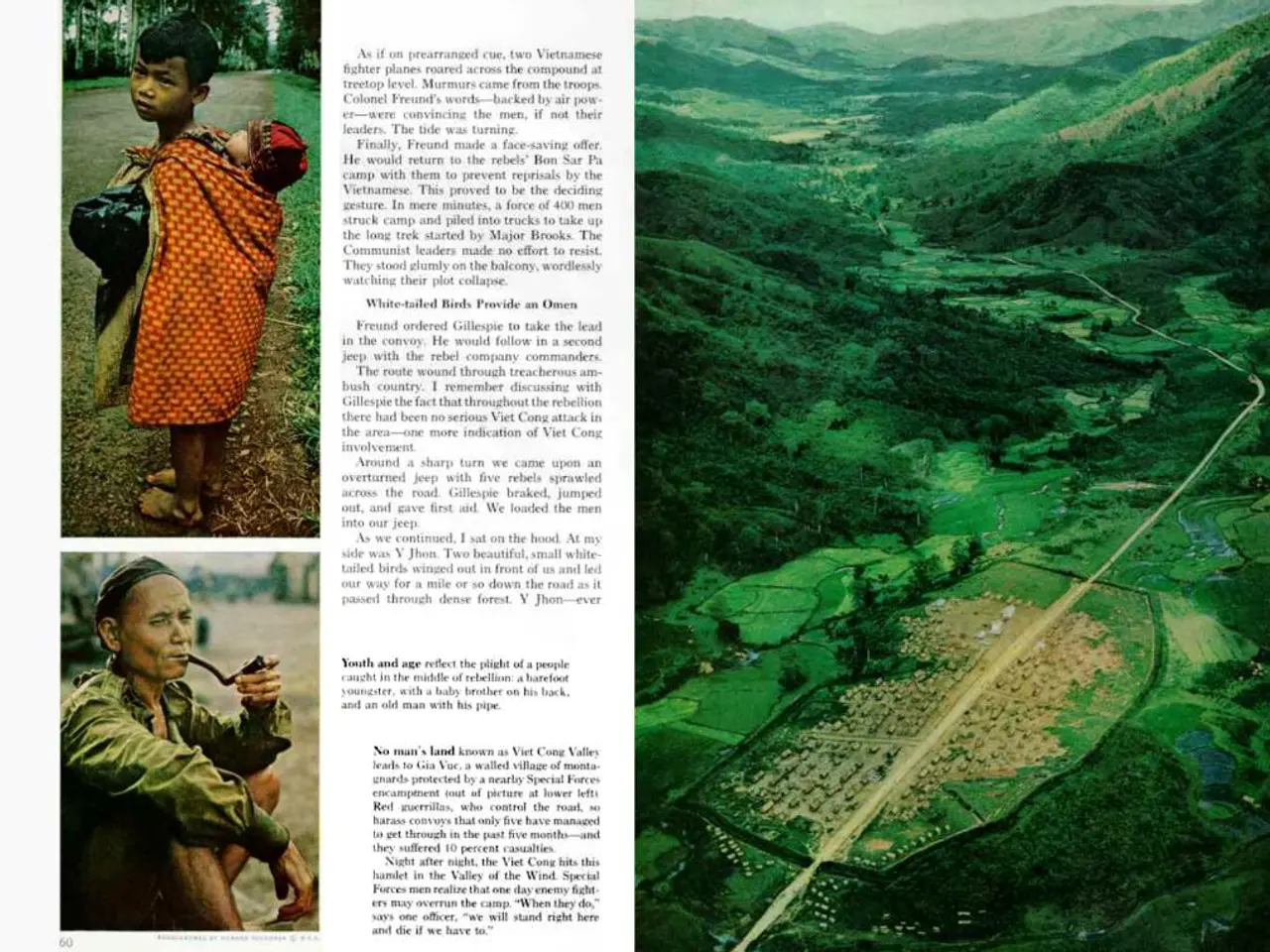Verifying claims: Netanyahu's misinformation on Gaza's food scarcity crisis
In the contested region of Gaza, a humanitarian crisis is unfolding, with substantial evidence pointing towards widespread starvation and famine conditions. This contradicts denials by Israeli Prime Minister Benjamin Netanyahu and other officials.
The United Nations-backed food security experts have labelled Gaza's situation as the "worst-case scenario of famine." Two out of three famine indicators—plummeting food consumption and acute malnutrition—have already been met. Although the third criterion (deaths from malnutrition) cannot be fully demonstrated, there is mounting evidence of rising hunger-related deaths. Over 20,000 children have been treated for acute malnutrition, and 16 deaths have been reported recently [1].
Gaza's infrastructure, already severely damaged (about 70% destroyed), deepens the humanitarian crisis. The blockade imposed by Israel on March 2, 2025, aiming to pressure Hamas regarding hostages, has exacerbated the situation. This blockade, combined with conflict and the collapse of ceasefire, has resulted in widespread hunger. The World Food Programme estimates that a third of Gazans do not eat for days, with alarming reports of starvation deaths [2].
Amnesty International and Human Rights Watch have documented Israel's use of starvation as a weapon of war, deliberately imposing conditions that threaten the physical survival of Palestinians in Gaza. Testimonies from medical staff and affected families confirm acute starvation and desperation, worsened by militarized aid distribution systems and restricted food access [3].
The Integrated Food Security Phase Classification (IPC) has warned that famine thresholds have been surpassed in parts of Gaza. However, some supplies are being stored, diverted, or resold without clear oversight, making it challenging for aid groups, local authorities, and Israeli forces to monitor the situation [4].
Despite these grim realities, some posts and reports have misrepresented the image of a boy from Gaza with a rare muscular disease as evidence against claims of starvation. It is crucial to note that a pre-existing medical condition does not rule out malnutrition in the context of prolonged nutritional deficiency [5].
The BBC has investigated the quality of food aid packages delivered in Gaza, finding that they often lack the nutritional variety needed for a healthy diet, leading to deficiencies and long-term health issues [6]. A new independent study has suggested that the starvation figures reported in Gaza may actually be too low [7].
The situation in Gaza has sparked international concern and political action. British Prime Minister Keir Starmer has threatened to officially recognize a state of Palestine at the UN General Assembly in September unless Israel takes "substantive steps to end the appalling situation in Gaza" [8].
However, Israeli officials have rejected these claims, with some going as far as justifying the potential loss of lives due to the blockade. In August 2022, Israeli Finance Minister Bezalel Smotrich said it might be justified and moral to let Israel "cause 2 million civilians to die of hunger" until the "hostages are returned" [9].
This ongoing crisis in Gaza underscores the need for urgent action to alleviate the suffering of its people and address the root causes of this humanitarian emergency.
References: [1] United Nations Office for the Coordination of Humanitarian Affairs (OCHA) [2] The New York Times [3] Amnesty International [4] Human Rights Watch [5] The Guardian [6] BBC News [7] The Lancet [8] The Independent [9] Haaretz
- The United Nations-backed food security experts have labelled Gaza's situation as the "worst-case scenario of famine," with two out of three famine indicators already met.
- The government of Israel, however, continues to deny the unfolding humanitarian crisis in Gaza, contradicting substantial evidence.
- International media outlets and human rights organizations, such as Amnesty International and Human Rights Watch, have documented Israel's use of starvation as a weapon of war in Gaza.
- In the general news, there are reports of rising hunger-related deaths and 16 deaths recently due to malnutrition in Gaza.
- The World Food Programme estimates that a third of Gazans do not eat for days, and the situation is worsened by militarized aid distribution systems and restricted food access.
- Mental-health professionals have reported acute starvation and desperation among Palestinians in Gaza, according to testimonies from medical staff and affected families.
- Social-media platforms have been filled with posts and reports that misrepresent the image of a boy from Gaza with a rare muscular disease as evidence against claims of starvation.
- British Prime Minister Keir Starmer has threatened to officially recognize a state of Palestine at the UN General Assembly in September if Israel fails to take substantial steps to end the humanitarian crisis in Gaza.
- Israeli officials have rejected these claims, with some justifying potential loss of lives due to the blockade, as reported in newspapers like Haaretz in August 2022. War-and-conflicts, politics, crime-and-justice, health-and-wellness (mental and physical), nutrition, food-and-drink, lifestyle, pop-culture, and entertainment are areas heavily influencing the public discourse surrounding this humanitarian crisis in Gaza.




